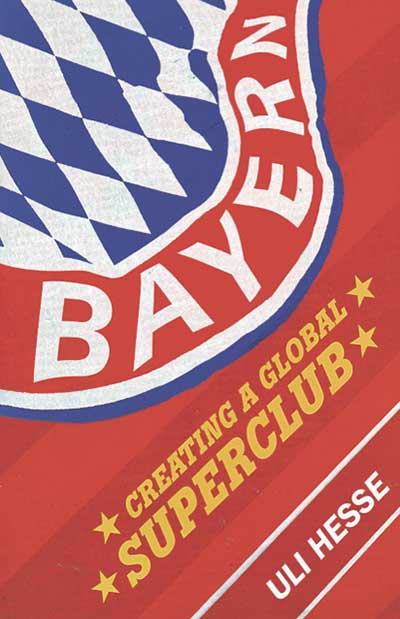
by Uli Hesse
Yellow Jersey Press, £14.99
Reviewed by John Van Laer
From WSC 358, December 2016
Buy this book
Even early in this new season, Bayern Munich seem to be cruising towards another Bundesliga title and a new era of success under Carlo Ancelotti. The club have long been a focal point for German sporting media coverage, but this reached previously unheard-of levels of saturation during the three-year reign of Pep Guardiola. As this book makes clear, Ancelotti’s predecessor polarised opinion almost as much as Bayern themselves, praised as much for style as he was criticised for lacking pragmatism and thereby failing in Europe.
Bayern were founded in the face of cultural opposition from a society that saw gymnastics as a more appropriate form of physical exercise for a group of young men, while football was “depraved and unpatriotic”. The club developed steadily through the interwar years, but stories about the Nazi period and the fate of Jewish players and officials are less well-known, even to those familiar with Germany’s footballing history. Uli Hesse’s focus on these events helps to explain how the modern Bayern emerged, producing players who had a vital role in establishing the club at the pinnacle of European football.
Despite the relative financial constraints imposed by the ownership system in German football, and a distribution of TV money that is much fairer than in other countries, the club’s continued success deserves praise, even if through gritted teeth. The need to balance the books is not a new requirement and it is interesting to note that Bayern were already playing friendly matches around Germany and across Europe to pay the wage bill decades ago. Hesse also reveals how long-term president Wilhelm Neudecker drove the decision to move to the Olympiastadion, which massively increased matchday revenue, but also employed “questionable tax-saving schemes” to secure the financial position of the club.
Interviews with key figures from the club’s history reveal how critical decisions were made and give insights into the mentality of players and officials. Bayern have always been open to foreign coaching expertise and recent trophies have been won with a mix of expensive purchases and local talent developed through the youth set-up – Philipp Lahm and others insist that the “Bayern family” is more than a cliche.
Of course, there is plenty to dislike about Bayern’s financial and commercial domination of the Bundesliga and German football in general, including the apparent tactic of buying players from rivals after they have had a decent season or two simply to weaken the opposition. Observers have also criticised the club’s seemingly relentless identification with the Bavarian motto, Mia san mia (roughly “We are who we are”) and their defensive reaction to Uli Hoeness’ conviction for tax evasion. As with successful clubs elsewhere, there is also a belief that all the questionable decisions tend to go their way.
This is a meticulously researched and well-written chronicle of a club who did not become a global brand entirely by design and are still determined to combine regional identity with international marketability. Writing a history of Bayern Munich that avoids both vitriol and glorification is no mean feat. Uli Hesse has done both with a fascinating book that stands apart from the host of forgettable Bayern-related publications.